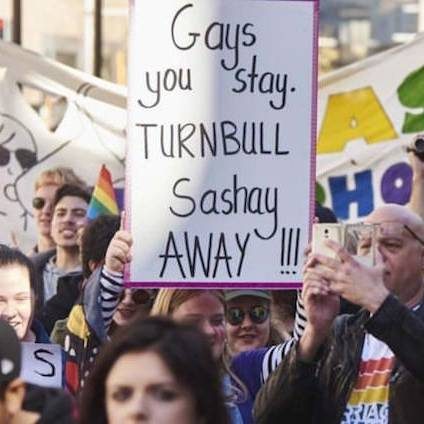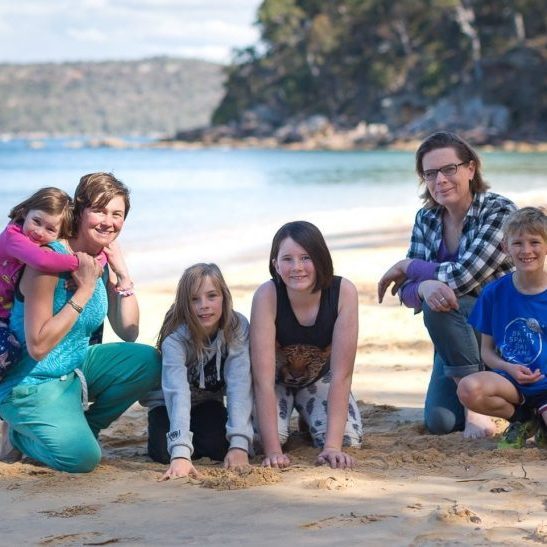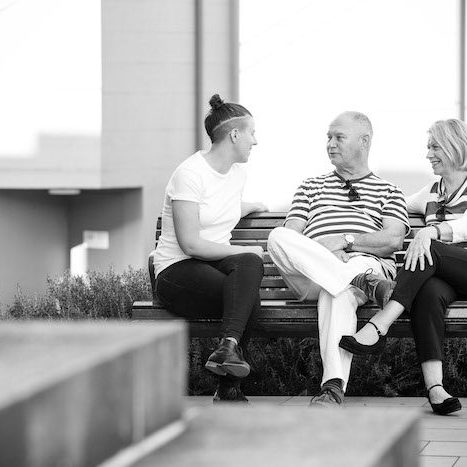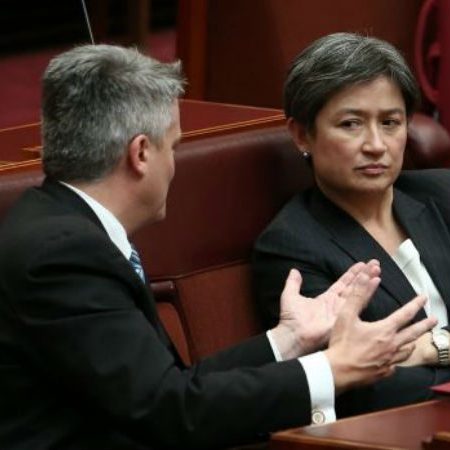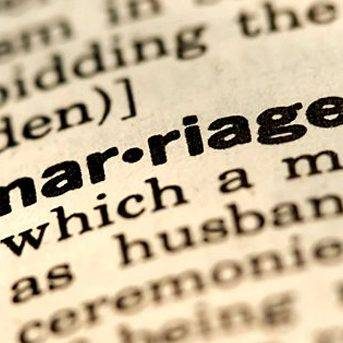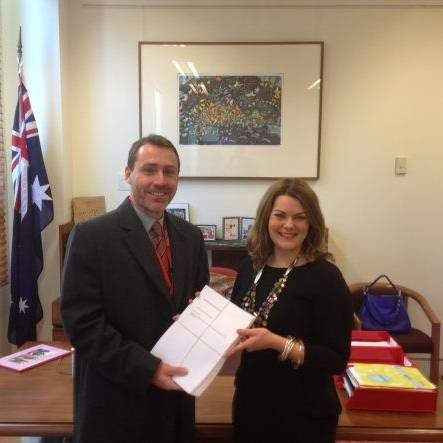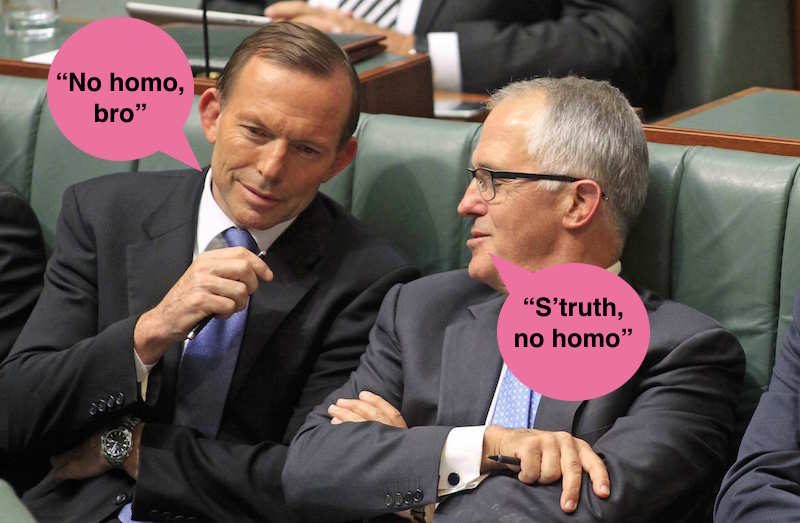
We round up how we’ve gotten to this point, and why it is ridiculous every step of the way.
Just in case the Australian Federal Government has forgotten what its job is, it goes something like this: ordinary citizens don’t have time to work out the intricacies of implementing the policies that reflect the majority of Australians’ views, because that is not what they are paid to do. Instead, citizens vote in politicians who are paid to represent their interests and attitudes, and legislate accordingly, without spending hundreds of millions of extra taxpayer dollars on consulting each individual Australian before they make a decision.
This was compared to the 25% of participants who “strongly agreed” that same-sex marriage should only be between a man and a woman, and an extra 8% of participants who “somewhat agreed” with that statement.
These responses were given by those who elected to partake in a brief online questionnaire on the ABC’s Vote Compass, a pre-federal election tool that was designed to generate an analysis of how the responder’s views compare to the positions of candidates in any given election. Evidently, those partaking in the questionnaire were not doing so for the sole purpose of proffering their views on same-sex marriage, and the fact that the questionnaire was on the Internet meant that it was accessible Australia-wide to anyone who wanted to complete it (obviously excepting those very remote parts of the Australia where the Internet is not available).
Over the past few years, the topic of same-sex marriage and the viability of its legality has come to dominate Australian airwaves. The Coalition’s 2016 election commitment entailed a “promise to the Australian people” not to hold a free parliamentary vote on same-sex marriage, and instead to implement a nationwide, non-binding plebiscite on the issue before any action was taken.
Last year’s attempt to implement that plebiscite failed dismally after same-sex marriage supporters argued that the homophobic vitriol such a national debate would entail would harm too many LGBTI+ people and their families. The other argument against the plebiscite was of course that it was and is completely unnecessary, arbitrary, and homophobically selective.
Now, understanding that a second attempt to implement a compulsory plebiscite will almost certainly not pass in the Senate, the Turnbull government has announced that it will implement a non-binding, non-compulsory, nationwide postal vote, to be undertaken by the Australian Bureau of Statistics, not the government, asking Australians whether they agree or disagree that marriage should only be between a man and a woman (as if we don’t already know what the consensus is).
Ballot papers are to be sent out on September 12. November 7 would be the last date for receiving the completed ballot papers, with the result to be declared by November 15.
The ABS is still struggling to maintain any semblance of proficiency since last year’s completely bungled census. Further, the non-compulsory, postal status of this effective plebiscite will likely mean that responses will be skewed towards the attitudes of older Australians, who are already known to be less in favour of same-sex marriage than their younger counterparts.
At a press conference in Canberra yesterday, on August 8, the PM said “Strong leaders carry out their promises, weak leaders break them. I’m a strong leader. I made that promise [for a national vote on gay marriage] again and again. The important thing is every Australian gets their say.”
If Mr Turnbull will recall, before May 2004, the Marriage Act included no provision about which genders and/or sexes could marry each other. Anyone could marry anyone.
Only one hour after announcing at a Press Conference that he planned to do so, PM Howard rushed legislation through Parliament which changed the Marriage Act to include a definition of marriage as the “voluntarily entered-into union of a man and a woman to exclusion of all others”.
The postal vote that is now Coalition policy will cost the Australian public $122 million.
Deputy Labor leader Tanya Plibersek said, “I think that people will question the legitimacy of [the postal vote] because it is a dodgy process, we know that both the plebiscite and now this postal plebiscite are dreamt up by people who are opponents of marriage equality to delay the inevitable.”
Meanwhile, Tony Abbott was standing at parliament’s doors this morning speaking in favour of the postal vote. He had this to say to a reporter:
So there you have it, folks; somehow, legalizing same-sex marriage will also stop freedom of speech. If that’s the case, (and we all know that same-sex marriage is inevitably going to become law, sooner rather than later), I reserve my current freedom of speech to call you a right f**king dickhead, Mr Abbott.

